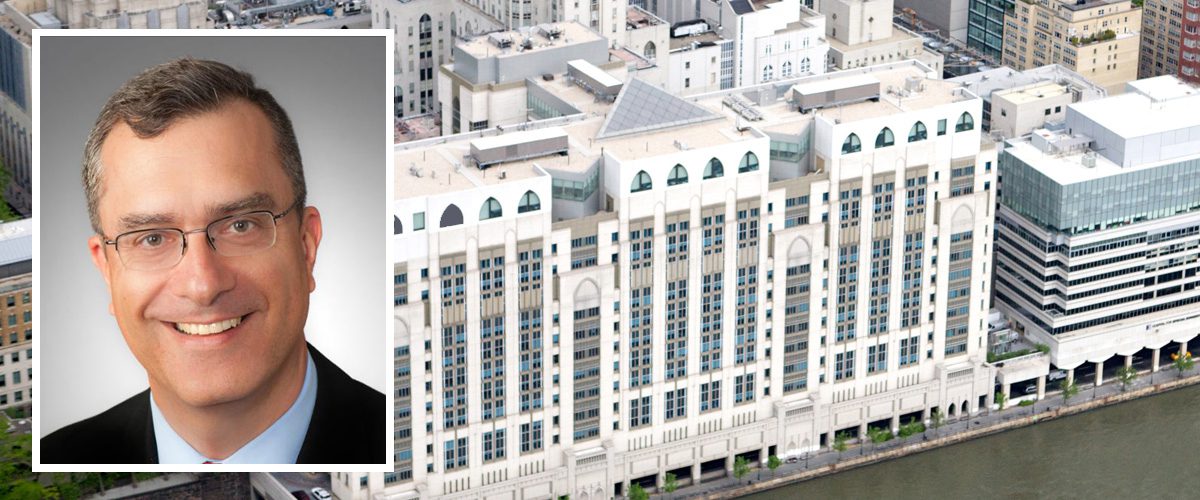Dr. Bernhard Kühn Named Chief of the Division of Cardiology in Pediatrics at Weill Cornell Medicine and NewYork-Presbyterian Komansky Children’s Hospital

Dr. Bernhard Kühn, a leading physician-scientist who specializes in heart regeneration, has been named chief of the Division of Cardiology in the Department of Pediatrics at Weill Cornell Medicine and NewYork-Presbyterian Komansky Children’s Hospital, effective Feb. 1.
In his role as chief, Dr. Kühn will lead a skilled team of physicians and scientists committed to enhancing the division’s clinical care, education and research programs that aim to improve cardiac health in children. He will also lead the new Pediatric Institute for Heart Regeneration and Therapeutics (I-HRT) which will focus on pediatric myocardial growth and regeneration and the goal of turning research findings into new therapies for cardiac patients.
Dr. Kühn, who was recruited to Weill Cornell Medicine as a professor of pediatrics, will serve as co-director of the NewYork-Presbyterian Children’s Heart Center. The center is a collaboration between NewYork-Presbyterian Komansky Children’s Hospital and NewYork-Presbyterian Morgan Stanley Children’s Hospital, and brings together expertise from Weill Cornell Medicine and Columbia University Vagelos College of Physicians and Surgeons. He will also direct a junior faculty research award program that will provide research support for pediatric cardiologists across NewYork-Presbyterian Komansky Children’s Hospital and NewYork-Presbyterian Morgan Stanley Children’s Hospital who are interested in developing new therapies for heart disease in children.
The Division of Pediatric Cardiology provides expert care for children with heart disease and disorders. Services include diagnostic imaging, interventional cardiology procedures, including balloon angioplasty, stenting of blood vessels and device closure of heart defects, and cardiovascular surgery to correct congenital heart defects and treat conditions such as heart tumors.
Dr. Kühn was recruited from the University of Pittsburgh School of Medicine, where he held the title of professor of pediatrics, and the UPMC Children’s Hospital of Pittsburgh, where he was director of the Pediatric Institute for Heart Regeneration and Therapeutics and associate director of the Richard King Mellon Foundation Institute for Pediatric Research. Together with Dr. Kühn, his longtime collaborator from University of Pittsburgh School of Medicine, Dr. Honghai Liu, will join the faculty at Weill Cornell Medicine to co-direct a joint laboratory program.
“We are thrilled to welcome Dr. Kühn as our new chief of pediatric cardiology,” said Dr. Sallie Permar, chair of the Department of Pediatrics at Weill Cornell Medicine and pediatrician-in-chief at NewYork-Presbyterian Komansky Children’s Hospital. “As a an internationally recognized physician-scientist, Dr. Kühn is an excellent choice to lead our renowned pediatric cardiology program as we continue to enhance our multidisciplinary research approach, train the next generation of specialists in this field, and offer the best, most innovative care for children.”
“A driving factor for coming to Weill Cornell Medicine and NewYork-Presbyterian is that this division, and the department as a whole, has a wonderful culture of collaborative professionalism and innovation while striving for excellence in patient care,” Dr. Kühn said.
A pioneer in the unique workings of heart muscle cells, or cardiomyocytes, Dr. Kühn has focused his work on the study of heart regeneration. “In pediatric cardiology and congenital heart disease, we have achieved so much in the past 60 years. The question now is not will a baby live, because in an overwhelming percentage of cases, the answer is yes. It’s: ‘How can we enable our patients to live a long, healthy life?’” he said.
Dr. Kühn’s research has shown that infants with certain types of congenital heart disease have fewer heart muscle cells. While regenerating heart muscle has not been achieved in adults, evidence suggests that the barrier to regenerate heart muscle in infants is lower.
“The only definitive way to give back heart muscle is heart transplantation, which can have inherent lifespan-limiting complications,” he said. “Our research is directed at understanding the mechanisms that restrict regeneration of an appropriate number of heart muscle cells. When we understand the barriers, we can treat patients to make heart muscle cells, so they are better equipped to lead a meaningful life.”
Dr. Kühn received his medical degree from Freie Universitat Berlin and completed a residency at Yale New Haven Hospital, followed by a clinical fellowship and post-doctoral research fellowship at Boston Children’s Hospital and Harvard Medical School.
Board-certified in pediatric cardiology, Dr. Kühn is a member of the American College of Cardiology, the American Association for the Advancement of Science, the American Heart Association and the American Society for Clinical Investigation.
He is the recipient of several awards and grants, including a Young Investigator Award from the American College of Cardiology, the Basil O’Connor Starter Award from the March of Dimes Birth Defects Foundation and a Scientist Development Grant from the American Heart Association.
Dr. Kühn has coauthored numerous articles published in leading peer-reviewed journals, including Nature Medicine, Cell and a landmark study in the Proceedings of the National Academy of Sciences that demonstrated evidence for heart muscle proliferation in infants and children.

